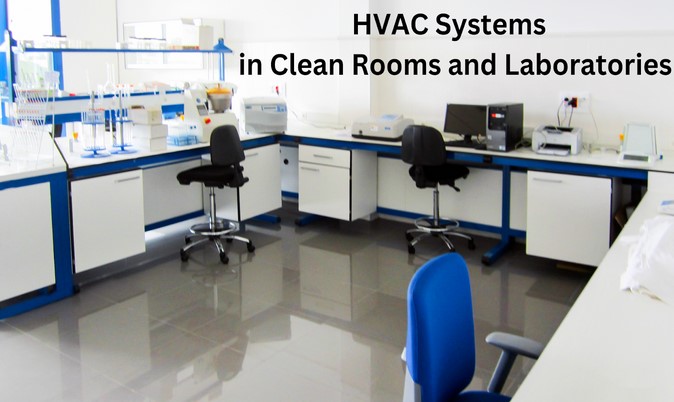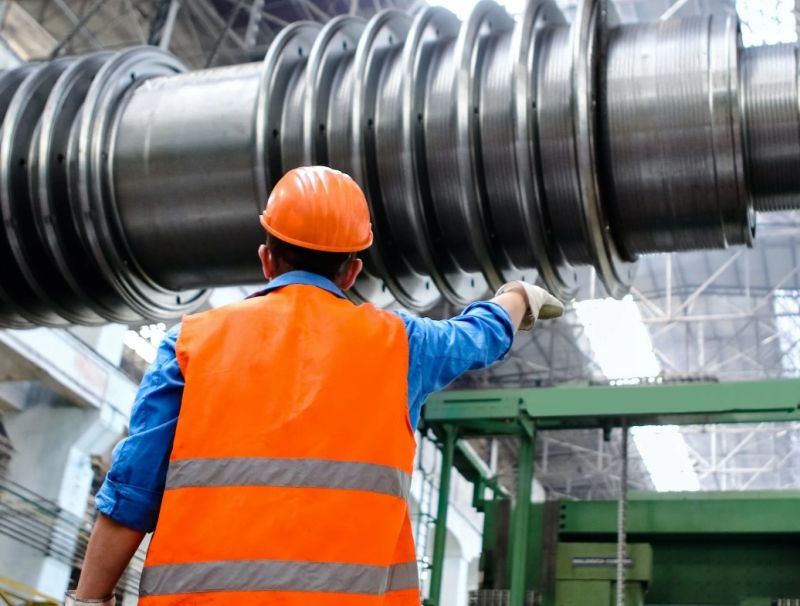An HVAC system is a system that controls and maintains humidity, air quality, and temperature in a building. It comprises cooling and heating equipment like an air conditioner and furnace. Clean rooms and laboratories are different from general areas because they are designed to meet specific safety and environmental requirements.
HVAC systems play a key role in maintaining indoor air quality in labs and cleanrooms. Labs and clean rooms need a controlled workspace for manufacturing and research processes. These processes must occur in a safe space to protect against airborne contaminants, humidity, and temperature.
In this article, we will walk you through some of the fundamental roles of HVAC systems in labs and clean rooms. We will also discuss why you must maintain these systems to ensure optimal performance.

Importance of an HVAC System in Laboratories and Clean Rooms
Labs in Texas require well-installed HVAC systems to control the temperature in the workspace. Texas experiences various weather changes throughout the year. Labs and clean rooms need a controlled temperature for specific processes and research.
Hence, these facilities need better air systems to produce optimal results and a comfortable working environment. Your HVAC installation in Fort Worth must be done by professionals with years of experience in this field.
Laboratories need precise conditions to ensure accurate test and research results. HVAC systems help prevent erroneous results by providing optimal humidity and temperature control.
The Key Roles of an HVAC System in Laboratories
Laboratories are used for testing and researching sensitive and dangerous materials. Air conditioning units help maintain a stable and safe lab environment.
Proper Ventilation
One of the vital roles of HVAC in labs is to provide ventilation. Proper ventilation helps remove vapours, fumes, and hazardous gases from the air.
Labs usually have unique vent systems that control the flow and direction of air. This helps prevent the spread of harmful gases and materials. HVAC units also have advanced features like air cleaning technologies. They also have HEPA filters for removing airborne particles and activated filters for removing organic vapours.
Humidity and Temperature
Humidity and temperature control are also important in lab environments. This is because some materials and research works are sensitive to humidity and temperature changes. HVAC units for labs have specialized humidity and temperature control systems. They help condition the air to provide accurate and stable humidity and temperature control.
Prevents Cross-Contamination
Furthermore, HVAC systems help prevent cross-contamination of materials and samples in labs. Laboratories usually have various zones and rooms. The different sections often have varying air quality and levels of cleanliness requirements. A commercial or residential HVAC service team can configure the system to maintain the required air quality for each room. As such, a well-installed HVAC unit can stop the spread of contaminants in the lab.
If you want to enjoy the amazing benefits of HVAC systems in your lab, you should hire the best air conditioning installation team. Experienced HVAC companies know how to choose the best products that will deliver excellent results for your lab.
The Vital Role of HVAC Units in Clean Rooms
Clean rooms are special workspaces created to minimize the level of contaminants and airborne particles. The objective here is to maintain a certain level of cleanliness. Many industries use clean rooms, including:
-
Pharmaceuticals
-
Aerospace
-
Electronics
-
Biotechnology
Help Maintains Desired Air Quality
HVAC systems are one of the most important accessories in clean rooms. That is because they help maintain the desired air quality levels in clean rooms. Good air quality is essential to the research processes and workers in the environment.
Temperature and Humidity Control
Another key function of HVAC units in clean rooms is controlling humidity and temperature. Clean rooms have strict humidity and temperature requirements. The requirements can vary based on the clean room type and its processes.
An HVAC service team can configure HVAC systems to control these variables. The units will provide the required temperature and humidity levels for a predictable and stable environment. HVAC units in clean rooms also help control the level of airborne contaminants like gases, particles, and microorganisms.
Clean room HVAC systems often use different air distribution methods like turbulent and laminar airflow. Turbulent airflow helps in creating a more uniform air mixture. Whereas laminar airflow directs air in one direction and reduces turbulence.
Proper Air Circulation and Filtration
HVAC units in clean rooms provide high levels of air circulation and filtration to eliminate contaminants. Filters in clean room HVAC units usually are often more efficient than those in standard commercial HVAC units.
The choice of HVAC system distribution methods depends on what the clean room is used for. You should consult an HVAC contractor if you are unsure of which method to choose. A professional HVAC service company will access your clean room and its processes to determine the best HVAC solution.
It is essential to work with professionals who are highly experienced in this field and would provide great value for your money.
HVAC Maintenance in Labs and Clean Rooms
You should always maintain your HVAC systems in your lab or clean room for safety and optimal performance. These systems deliver better performance and results when you maintain them regularly.
Maintaining the units require specialized experience and knowledge. Hence, you should outsource the maintenance to only an experienced HVAC service company. Maintenance activities include:
-
Regular cleaning
-
Calibration of sensors and controls
-
Filter replacements
Regular cleaning of HVAC systems is vital to prevent contamination in the lab or clean room. Air filters need regular cleaning or replacement to ensure they work well. It also helps remove airborne particles effectively.
A professional also needs to inspect the unit regularly for leaks and other damages that could reduce its performance. Censor and control calibration are also necessary to maintain the ideal lab and clean room conditions. Regular maintenance helps ensure the unit’s sensors are always functional.
Here are some benefits of HVAC system maintenance:
-
Improved Air Quality
Regular HVAC system maintenance ensures they function correctly always. It also helps remove airborne particles from the air. This enhances air quality in labs and clean rooms to protect the health and safety of staff in the environment.
-
Compliance with Regulations
Laboratories and clean rooms are subject to strict and periodic standards and regulations. Organizations like the OSHA and ISO also have standards for labs and clean rooms. Routine maintenance helps ensure compliance with regulations. It also helps reduce the chances of legal consequences and penalties.
-
Enhanced Equipment LIfespan
Besides improving air quality, regular maintenance can help improve the lifespan of your HVAC systems. It could extend its useful life and reduce the need for expensive replacements. Maintenance reduces wear and tear on the units, ensuring they serve you for a long time.
-
Improved Safety
Environmental conditions can affect staff members’ safety in labs and clean rooms. For instance, inadequate ventilation can result in the buildup of harmful gasses or fumes. That can lead to safety hazards and dangerous workspace. Routine maintenance will help to keep the unit in perfect condition to make the environment safe for workers.
-
Improved Product Quality






